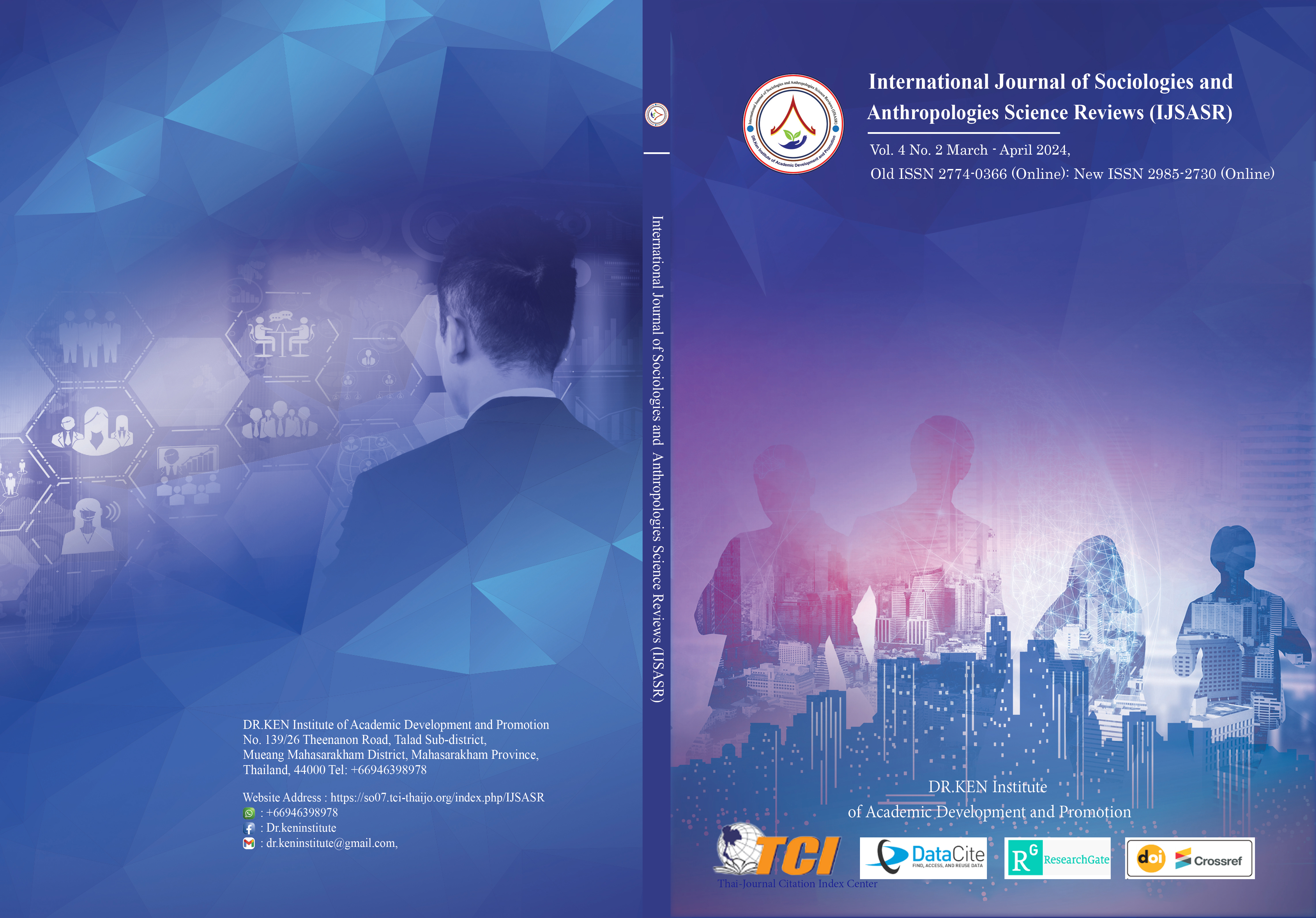The Historical Process and Deep Influence of Sino-Thai Educational Intermingling—A Case Study on Yunnan Context
Main Article Content
Abstract
Background and Aims: As China's radiation center faces South and Southeast Asia and the forefront of the "the Belt and Road" construction, Yunnan's unique geographical location and rich cultural heritage provide valuable opportunities for educational exchanges between the two countries. Therefore, to further analyze the profound impact of cultural exchange between the two countries on China. This article aims to explore the future direction and possibilities of education cooperation between China and Thailand, taking Yunnan as an example. From a more comprehensive and profound perspective, it provides feasible ways to further strengthen the relationship between the two countries and deepen cooperation.
Methodology: By using the methods of historical records, policy analysis, and comparative study, this paper examines the evolution of educational exchanges between China and Thailand and its impact on the educational policies of the two countries. This paper first reviews the historical evolution of educational exchanges between China and Thailand, and analyzes the cooperation mechanism and contents of cooperation between the two countries in the field of education. Then, this paper compares the characteristics of the internationalization of higher education between China and Thailand, as well as the cooperation between the two countries in personnel training, teaching method improvement, and education quality assurance. Finally, this paper discusses the impact of Sino-Thai educational exchanges on the economic, cultural, and educational changes of the two countries, as well as the experiences and feelings of students in educational exchanges between the two countries.
Results: the educational cooperation between China and Thailand has developed from the early language and cultural exchanges to a deeper level of educational cooperation, including degree education and professional training. This paper finds that the driving force of Sino-Thai educational cooperation mainly comes from the political, economic, and cultural interdependence of the two countries, as well as the interest and curiosity of the students of the two countries. This paper also finds that the effect of Sino-Thai educational cooperation is mainly reflected in the improvement of the knowledge, skills, and literacy of the students of the two countries, as well as the enhancement of cross-cultural awareness and cross-cultural communication ability of the students of the two countries.
Conclusion: The educational exchanges between China and Thailand have not only enriched the learning experience of the students of the two countries but also promoted friendly cooperation and exchanges between the two countries in the field of education. This paper holds that the educational exchange between China and Thailand is not only an important way for cultural exchange between the two countries but also an important basis for the friendly relations between the two countries. This paper suggests that the future Sino-Thai educational cooperation model should pay more attention to the actual needs of the market and society, as well as the development of high-level cooperative education. This paper also suggests that the two countries should strengthen the supervision and evaluation of educational exchanges to ensure the quality and effectiveness of education.
Article Details

This work is licensed under a Creative Commons Attribution-NonCommercial-NoDerivatives 4.0 International License.
Copyright on any article in the International Journal of Sociologies and Anthropologies Science Reviews is retained by the author(s) under the under the Creative Commons Attribution-NonCommercial-NoDerivatives 4.0 International License. Permission to use text, content, images, etc. of publication. Any user to read, download, copy, distribute, print, search, or link to the full texts of articles, crawl them for indexing, pass them as data to software, or use them for any other lawful purpose. But do not use it for commercial use or with the intent to benefit any business.

References
Cui, Y., & Wen, W. (2022). Progress and Challenges of Sino-Thai Higher Education Cooperation and Exchanges. Higher Education Management, 16(1), 100-109.
Dao, N., & Li, H. (2015). A comparative analysis of higher education between China and Thailand from the perspective of international cooperation. Kunming Metallurgical College Journal, 31(6), 3-10.
Fan, Y.G. (2023a). Enhancing the influence of Chinese civilization in maintaining and expanding overseas cultural interests. Study and Exploration, 7(7), 1-13.
Fan, Y.G. (2023b). The spread of Chinese culture abroad and the expansion of overseas cultural interests. Social Science Journal, 36(1), 1-13.
Feng, Y., & Liu, L. (2008). Analysis of Opportunities and Countermeasures for the Internationalization of Yunnan-ASEAN Higher Education. Journal of Yunnan Normal University (Philosophy and Social Science Edition), 4(04), 129-133.
Jiang, Y. (2020). Strategic measures for education and in-depth cooperation between China and Thailand. Guide to Science and Education, 19, 3-10.
Li, T. (2000). History of Chinese Education Abroad: After 1949. Beijing: Higher Education Press.
Li, Y. (2021). The policy change of Chinese education in Thailand and the development of Chinese international education in China. Comparative study of Cultural Innovation, 5(26), 5-14.
Liu, Z. (2009). Strategies for Yunnan-ASEAN Higher Education Cooperation under Globalization and Regionalization. Academic Exploration, 3(3), 130-133.
Lu, G., Kang, H., & Yan, N. (2013). Chinese-Foreign Cooperative Education: Current Situation, Problems, and Development Countermeasures. Research on Higher Engineering Education, 4(4), 75-80.
Ruan, S. (2009). Internationalization of Thai higher education. Southeast Asia, 12(12), 14-18.
Yi, J.-D., Cheng, B., & Feng, Y. (2007). Exploring the development path of Yunnan-ASEAN higher education internationalization. Research on Higher Engineering Education, 3(3), 52-56.
Zhang, J.Z. (2020). Internationalization of education: An important force for building a community of human destiny. Higher Education Management, 14(2), 21-28+36.
Zhu, Y., & Liu, J. (2017). International Chinese language education in Yunnan: Problems and countermeasures. Journal of Yunnan Normal University (Teaching and Research of Chinese as a Foreign Language Edition), 15(1), 85-92.






